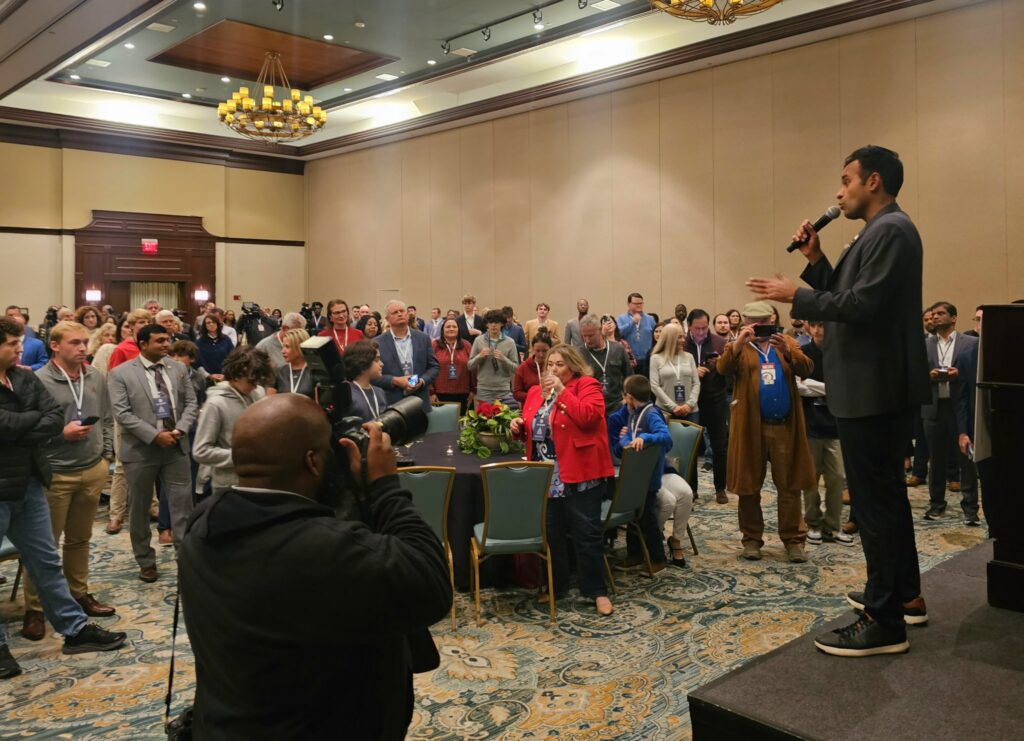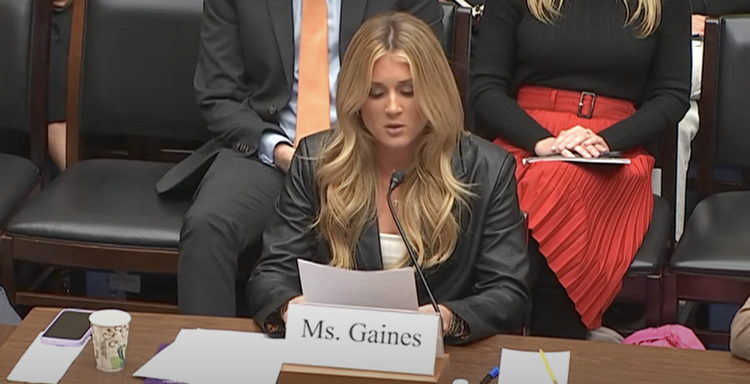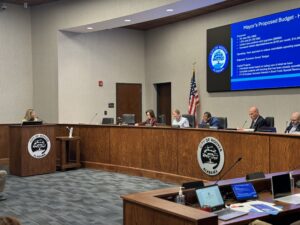With winter temps coming, hypothermia can be fatal

It’s December. This time of year brings Christmas, New Year’s, bowl games, and a lot of parties. It also brings cold weather, and cold weather can kill. The Alabama Department of Public Health released a statement on Wednesday warning that hypothermia can lead to death. ADPH warned that the milder climate of Alabama in winter may mask the need to be aware of weather conditions. Hypothermia is a medical emergency that can lead to death. Hypothermia occurs when the body’s core temperature falls below 95 degrees F, just a few degrees less than the normal body temperature. When exposed to cold, human bodies begin to lose heat faster than it can be produced. According to provisional data for 2022 from ADPH’s Center for Health Statistics, there were 18 deaths in Alabama from hypothermia in 2022. That is an increase from the 10 deaths in 2021. To prevent hypothermia, stay warm, keep well informed and take extra precautions during times of extremely cold weather. Everyone should remember to lower the risks of cold-weather health problems by dressing in multiple layers to help retain body heat, limit time outdoors, and remove wet clothing immediately. This all makes sense to someone reading this in a house with the furnace on and the thermostat maintaining a minimum temperature of 68 degrees. Still, ADPH cautions that hypothermia makes people unable to think clearly or move well. This makes hypothermia especially dangerous, because a person may not know when it is occurring and then will not be able to do anything about it. According to the Centers for Disease Control and Prevention (CDC), victims of hypothermia are often: · Older adults with inadequate food, clothing or heating · Babies sleeping in cold bedrooms · People who remain outdoors for long periods—the unhoused, hikers, hunters and others · And People who drink alcohol or use illicit drugs. As the body ages, the ability to maintain a constant internal temperature decreases. Hypothermia risk is even greater when an older person has a chronic condition that affects the circulatory or neurologic systems, or the thyroid. When the core temperature falls, bodily functions shut down. Living quarters for older adults should be heated to at least 65 degrees F, they should wear suitable clothing, have plenty of warm blankets available, and eat nutritionally balanced food. In addition to advanced age, common risk factors for hypothermia are substance abuse and mental impairment. Certain commonly used drugs such as tranquilizers may contribute to the onset of hypothermia. Many deaths from hypothermia are complicated by alcohol consumption, which can lead to dehydration and impaired judgment. According to the CDC the symptoms of hypothermia include: · Shivering · Exhaustion or feeling very tired · Confusion · Fumbling hands · Memory loss · Slurred speech · Drowsiness In babies the symptoms are: · Bright red, cold skin · Very low energy Immediate medical attention is needed if a person’s temperature falls below 95 degrees F. If unable to get medical help right away, try to warm the person up. · Get the person into a warm room or shelter. · Remove any wet clothing the person is wearing. · Warm the center of the person’s body—chest, neck, head, and groin—using an electric blanket, if available. You can also use skin-to-skin contact under loose, dry layers of blankets, clothing, towels, or sheets. · Warm drinks can help increase body temperature, but do not give alcoholic drinks. Do not try to give beverages to an unconscious person. · After body temperature has increased, keep the person dry and wrap their body, including their head and neck, in a warm blanket. · Get the person proper medical attention as soon as possible. A person with severe hypothermia may be unconscious and may not seem to have a pulse or to be breathing. If this happens, handle the person gently, and get emergency assistance immediately. Perform CPR, even if the person appears dead. CPR should continue until the person responds or medical aid becomes available. Keep warming the person while performing CPR. In some cases, hypothermia victims who appear to have died can be successfully resuscitated. On extremely cold nights check on elderly relatives and neighbors, make sure that the children are inside and not outside playing, and bring the pets inside. To connect with the author of this story or to comment, email brandonmreporter@gmail.com.
Katie Britt, Tommy Tuberville and colleagues urge Biden administration to enforce sanctions on Iranian steel

On Tuesday, U.S. Senator Katie Britt (R-Alabama) announced that last week she and Tommy Tuberville (R-Alabama) had joined 29 of their Senate Republican colleagues in a letter to President Joe Biden, Secretary of State Antony Blinken, and Treasury Secretary Janet Yellen urging the Treasury Department to enforce existing sanctions on Iranian steel. “The Biden Administration must reimpose a comprehensive, bone-crushing sanctions enforcement regime on Iran and its terror proxies,” stated Senator Britt. “As this Administration continues down a dangerous, misguided path of appeasement, it only endangers our national security and emboldens our adversaries across the globe. It is past time to achieve peace through unrelenting strength.” In the letter, the Senators express the importance of “proactively and continuously” enforcing sanctions and the detrimental consequences of ineffective – or willfully negligent – enforcement. Iran is one of the largest steel-producing countries in the world, with the industry generating significant funds via exports. “In 2020, the United States sanctioned Iran’s metals industries and steel producers, massively impacting their exports in 2021,” the Sens. wrote. “The enforcement of these sanctions decreased Iranian steel exports from 9 million metric tons in 2020 to 4.2 million tons in 2021,” wrote the Senators. “However, Iranian steel exports rebounded to 10 million tons in 2022. This correlates to the United States reengaging with Iran to revive the Joint Comprehensive Plan of Action (JCPOA), along with a decrease in enforcement of existing sanctions by the Treasury Department.” “We write to you just weeks after our nation’s great ally was suddenly and barbarically attacked by Hamas terrorists—proxies funded, trained, and equipped by the Islamic Republic of Iran,” the Sens wrote. “The pure evil inflicted on the Israeli people on October 7, 2023, will live in infamy as one of the deadliest terrorist attacks in world history.” “Iran is the largest state sponsor of terrorism across the globe, and its stated objective is to wipe Israel off the face of the planet,” the Sens. continued. “It is estimated that Iran provides $700 million dollars annually to Hezbollah and $350 million annually to Hamas. Additionally, Iranian-backed terrorist proxies in Syria and Iraq have received substantial new financial support, including double-digit percentage increases to the salaries paid to affiliated individuals this year alone.” “Steel is one of Iran’s most lucrative export markets,” the Sens. explained. “The World Steel Association announced in September 2023 that Iran is the 10th largest steel producer in the world. In 2020, the United States sanctioned Iran’s metals industries and steel producers, massively impacting their exports in 2021. The enforcement of these sanctions decreased Iranian steel exports from 9 million metric tons in 2020 to 4.2 million tons in 2021. However, Iranian steel exports rebounded to 10 million tons in 2022. This correlates to the United States reengaging with Iran to revive the Joint Comprehensive Plan of Action (JCPOA), along with a decrease in enforcement of existing sanctions by the Treasury Department.” We urge your Administration to enforce all Iran-related sanctions at your disposal, to include secondary sanctions on other countries who seek economic engagement with Iran. We owe it to the innocent children, women, and men who were savagely beaten, raped, tortured, and killed on October 7, 2023.” Iran funds terror groups in Iraq, Syria, Lebanon, Gaza, Yemen, and other places. Those Iranian-backed militia groups have, in recent weeks, attacked American armed forces as well as the Israelis. The U.S. Navy destroyer Carney was recently attacked in the Red Sea by drones launched by the Iranian-backed Houthi terrorists in Yemen. While the Ayatollah has consistently used the harshest rhetoric possible about war with the United States and Israel, the Biden administration has avoided taking sterner stances with the country. Republican critics argue that the Biden Administration’s payment of six billion dollars to Iran in exchange for prisoners only emboldened the regime by showing weakness. Katie Britt was elected to the Senate in 2022. To connect with the author of this story or to comment, email brandonmreporter@gmail.com.
Applicants for all-inclusive medical cannabis facilities make case to state commission

Alander Rocha, Alabama Reflector Companies seeking to build all-inclusive medical cannabis facilities began making their cases to the Alabama Medical Cannabis Commission on Tuesday. Presentations will run from Tuesday until Friday, and the commission will award the licenses next week. Applicants seeking integrated facility licenses, which would grow, process, and distribute medical cannabis, were allotted up to 45 minutes to speak to the commission. Most companies stressed their ability to quickly get products to patients. “We will grow [medical cannabis] and produce products and have them on the shelf within several months, as fast as that plant can grow and we can harvest it,” said Chuck Smith, chief operating officer and part owner of Southeast Cannabis Company. Smith said they could have products available as early as June if they begin operating in January. AMCC Chair Rex Vaughn said that while the commission is considering how quickly dispensaries can get products to patients, he feels that hearing from companies talk about their business has been most valuable. “I think all of us are interested in how aggressive they can be with the timeframe since we had delay after delay up to this point,” he said. “But I think what we’re really looking for — and enjoying hearing — is them being so straightforward with us and telling us their game plan and how intentional they tend to be with what they’re going to do.” The commission will grant five integrated facilities licenses. “It’s going to be next to impossible,” Vaughn said. “Kind of like the last time we did it — we all felt, I guess, fuzzy because we knew we had picked some really good ones, but at the same time we could not pick some other good ones.” Each integrated facility will operate five dispensaries that will be responsible for growing cannabis and selling the product in dispensaries. Cannabis firm denied license takes case to Alabama Court of Civil Appeals The commission awarded 20 licenses on Friday for businesses providing individual services, including cultivation, processing, and dispensing. An integrated facility would be authorized to perform every action for growing and cultivating medical cannabis. Thirty-six entities applied for integrated facilities licenses. There were 38 companies in the running, but two withdrew their applications. While some addressed perceived shortcomings in their applications, such as residency issues, others made emotional appeals when speaking to their experience in agriculture. Nell Maisel, a co-owner of Jemmstone Alabama, one of the integrated facility applicants, said that she was diagnosed with multiple sclerosis 20 years ago. That, she said, led her to invest in medical cannabis in other states, including most recently acquiring an integrated facility license in Florida. But Maisel cited her Alabama roots, including her education in the state’s public schools, as well as a degree from the University of Alabama. “I’ve done a lot of reading; it helps people, and that’s what I care about — especially in my home state of Alabama. And, like you know, the team is over 70% Alabamian, and that’s what I care about,” she said. The AMCC first awarded licenses in June, but scoring inconsistencies led the commission to void the awards and reevaluate the applications. A lawsuit alleging the commission violated the Open Meetings Act halted the process again in August. That prompted the commission to rescind the awards a second time, negotiating with claimants on a possible process to move forward with the awards. The AMCC adopted new licensing and application rules in October after months of legal dispute and stalled settlement negotiations, which set the latest round of applications in motion. The Alabama Legislature approved a medical cannabis program for the state in 2021, but the bill authorizing the program did not allow licenses to be issued until Sept. 1, 2022. The AMCC began accepting applications late last year. When the product is available, patients certified by participating physicians will be able to use medical cannabis for 15 conditions, including cancer, chronic pain, depression, and Parkinson’s Disease. Patients will have to apply for a card to obtain medical cannabis from licensed dispensers. The law forbids smoking medical cannabis or consuming it in food. It will be available as tablets, capsules, gelatins, oils, gels, creams, suppositories, transdermal patches, or inhalable oils or liquids. Cannabis gummies will only be allowed to be peach-flavored. Vaughn said these presentations allow the commission to pick companies that can get started with “minimal chance of a problem.” They are heavily weighing these presentations based on what the presenters tell the commission and how well “applicants can perform and what they’re telling us,” he said. “That’s what these presentations, I think, exposed to us,” he said. “It’s these companies, or these applicants, that probably provide us the best opportunity to get the industry going off as smoothly and quickly as possible.” Alabama Reflector is part of States Newsroom, a network of news bureaus supported by grants and a coalition of donors as a 501c(3) public charity. Alabama Reflector maintains editorial independence. Follow Alabama Reflector on Facebook and Twitter.
Presidential hopeful Vivek Ramaswamy receives warm welcome from Alabama GOP

President candidate Vivek Ramaswamy was in Hoover on Tuesday night at Ross Bridge Golf Resort for a reception held by the Alabama Republican Party before Wednesday’s Republican Presidential Debate. Ramaswamy said, “We are in a war” in this country between those who believe in the founding ideals of this nation and those who do not. Ramaswamy was born and raised in Cincinnati, Ohio, and is the son of immigrants from India. “I have founded multiple corporations,” Ramaswamy said. “My wife is a throat surgeon. She is saving lives. We have two sons. I am worried that that American dream is not going to exist for my sons.” “We are in the middle of a war in this country,” Ramaswamy continued. “It is not a war between Black and White as the media would have you believe. It is not even a war between Democrats and Republicans – not really. It is a war between those who believe in the founding ideals of our country and a fringe minority who believes that your identity defines you by race, ethnicity, religion, or sexuality. They believe we can use our military to defend somebody else’s border halfway around the world, but if you favor using our military to defend our border, then you are a racist and a xenophobe. Either you believe in free speech, or you do not. This country requires a commander in chief who understands that we are in a war.” Alabama Republican Party Chairman John Wahl welcomed Ramaswamy to Alabama. “It is rare for Alabama to have one of the frontrunning candidates for President of the United States stopover in Alabama for a meet and greet,” Wahl said. “You have seen him on the debate stage.” The third Republican Presidential Debate is Wednesday night in Tuscaloosa. “I am proud to have the debate here in Alabama,” Wahl said. “This is the first-ever presidential debate that Alabama has ever hosted – Republican or Democratic.” Wahl said he is glad the debate is being held on the University of Alabama campus. “It is so important that we engage with young people,” Wahl said. Wahl said that Democrats have a “complete lack of understanding of foreign policy, a complete lack of understanding of economic policy, and a complete lack of understanding of how you run a country.” “We are tempted to believe this is another election,” Ramaswamy said. “If we lose, I am not convinced that we can get this country back. We are working in a short period of time.” “We need a commander in chief from the next generation,” Ramaswamy continued. “I am from the next generation. I am 38 years old. If nominated, I will be the youngest Republican ever nominated. I will be the youngest person ever to be elected if you put me there.” Ramaswamy warned that we are losing the next generation. “This is the most dire challenge we face,” Ramaswamy stated. “60% (of young people in a recent poll) said that they would give up their right to vote for their ability to use electronics. Less than 16% of Gen Z say that they are proud to be an American.” Ramaswamy said that he believes in the ideals of faith, patriotism, hard work, and family and that these ideals have largely disappeared in the youth today and have been replaced by “poison.” “The media, they will fill that vacuum with their vision of gender, race, sexuality and climate,” Ramaswamy continued. “We believe in the ideals of the American Revolution.” “We will end affirmative action and race-based quotas,” Ramaswamy promised if elected. “We believe in the rule of law. We will use our military to secure our southern border. We the people create a media that is accountable to us. We will shut down government bureaucracies that should not exist from the FBI to the CDC to the Department of Education.” Ramaswamy added that we need “elections that we can trust” with single-day elections, paper ballots, and state-issued voter IDs. “I believe deep in my heart that those ideals still exist,” Ramaswamy continued. “We forgot all the ways that we really are the same as Americans.” “A culture of fear has replaced free speech in the United States,” Ramaswamy said. “The best measure of our country’s health is the percentage of people who feel free to say what they actually think in public. Speaking the truth not just when it is easy, but when it is hard.” Ramaswamy will be on the debate stage Wednesday night in Tuscaloosa with former United Nations Ambassador Nikki Haley, former New Jersey Governor Chris Christie, and Florida Governor Ron DeSantis. Former President Donald Trump is not participating in the debates. To connect with the author of this story or to comment, email brandonmreporter@gmail.com.
Steve Flowers: Lister Hill, one of Alabama’s greatest U.S. Senators

We had a very distinguished congressional delegation from Alabama during the 30-year span of 1934-1964. The congressmen from the Heart of Dixie appeared to be born to serve in Congress. Their pedigrees were all similar. They had pretty much been born and raised in the town they would eventually represent in Congress. Almost all had gone to the University of Alabama for their education, and most had graduated from Alabama’s Law School. While at the Capstone, most had been members of Greek fraternities. In addition to their Greek fraternal affiliation, they were politically active at the Capstone and also belonged to a mystic political fraternity known as “The Machine.” This group was basically a political party that was made up of the fraternities on campus. It was well organized, with secret endorsements made up of the fraternity candidates, and the endorsements were only revealed the day before the election. The fraternity candidates very rarely lost. It is a legendary political training ground, and almost every member of Congress during this era was a product of “The Machine.” After college and law school, these men served a stint in the military. Service in a World War and then membership in the VFW seemed to be a necessity for a political career. Alabamians have always had an affinity for folks who served their country and came home after the war to begin a perfunctory law practice that occupied them until the congressional seat they had been preparing for came open. Once they were elected, they planned on staying there. After all, they figured that a congressional career was what they were born for. They adhered to the adage attributed to many a Southern congressman. It was said many times by the solons from the South as they played poker in the cloakroom of the House or Senate, “I love being in Congress, and the only way I will leave will be by the ballot box or in a pine box,” and usually it was the latter. The person who most perfectly epitomized this prototypical congressman and senator of this era was the legendary Lister Hill of Montgomery. He was both a Congressman and a Senator. He was elected to Congress at age 28 and served 16 years in the U.S. House of Representatives. He was then elected to the U.S. Senate in 1938, where he served Alabama with distinction for 30 years. Hill had been born into privilege. He was the son of Dr. Luther Hill. His father was one of the first American surgeons to successfully suture the human heart. Hoping that their son would follow his father into medicine, the parents named Joseph Lister after the famous European physician who was the first doctor to advocate and practice use of antiseptics. Young Lister Hill decided one day, after watching his father operate, that he would not be a doctor. He actually fainted from the sight of blood. The Hill family was very prominent politically in Montgomery. In fact, at this time there were two political families who were like political parties. You had to run in Montgomery as either a candidate of the Hill family or the Gunter family. Lister set his sights on politics at an early age, probably dreamed of and maybe expected to be a U.S. Senator. He entered the University of Alabama at age 16 and became the first student government president at the University. He also was the founder of the aforementioned “Machine.” He was elected to Congress at 28 and served with distinction. He served in the U.S. House for 16 years and rose to be Chairman of the House Military Affairs Committee. He was instrumental in getting the Maxwell-Gunter military complex in Montgomery. Senator Hill had a hand in most major national legislation from 1938 to 1968. However, his greatest legacy was in the field of Public Health. The great medical center at the University of Alabama at Birmingham is because of Lister Hill. Probably the best-known legislation he was known for was the Hill-Burton Act. Through this 1946 Act, most of the rural hospitals in America and Alabama were built. Lister Hill is without question one of our state’s greatest U.S. Senators. See you next week. Steve Flowers is Alabama’s leading political columnist. His weekly column appears in over 60 Alabama newspapers. He served 16 years in the state legislature. Steve may be reached at www.steveflowers.us.
Probate Judge Ryan Robertson: Put patients ahead of profits through hospital billing reform

Probate Judges across Alabama are closely connected to families, businesses, and industry leaders in our communities who share personal stories about their lives. Many of these stories involve personal healthcare challenges and financial barriers that limit access to care. As we approach the end of the year, it is important that our federal lawmakers move policies over the finish line that will make an impact on people’s everyday lives – especially policies that can lower healthcare costs. Improving access to affordable health care should always be top of mind, especially for Alabama lawmakers like Congresswoman Terri Sewell. She, as well as other members of our congressional delegation, are deeply involved in federal committees that examine and create healthcare-related legislation. Through them, I hope that the voices of Alabama families, seniors, and veterans are elevated in Congress as we explore ways to bring down the cost of care. For Alabamians who have trouble paying for care, an already stressful circumstance is made worse. When financial hurdles seem insurmountable, patients are often deterred from accessing health care services altogether. This is the sad state of our health care system for too many Americans, whether they are seeking preventative care, visiting urgent care, undergoing a procedure, or receiving ongoing treatment for an illness. Thankfully, there are proposals on the federal level that hold the promise of positive change. The Facilitating Accountability in Reimbursements Act (FAIR) in the U.S. House and the Site-based Invoicing and Transparency Enhancement Act (SITE) in the U.S. Senate are strong proposals that make progress towards something we all need: more transparency in hospital billing. Right now, there are no policies in place that prevent huge hospital corporations from up charging patients solely based on the building or location where they receive care. These big businesses, large private equity firms, and other hospital groups are purchasing independent doctor’s facilities and bringing them under new ownership. Patients then see higher charges for health care services. Effectively, if a patient’s regular doctor’s office has been bought up by a hospital corporation, unbeknownst to them, the new owner can now charge higher rates. The FAIR and SITE Acts would protect against these bad hospital billing practices, mitigating the financial burden that many patients face today. I urge our lawmakers in Washington to examine a recent report outlining the cost impact of these unfair hospital billing practices. The report finds that, “Site-neutral payments — billing the same amount for the same service regardless of site of care — across care delivery settings would result in substantial savings for employers, employees, and patients.” This is exactly what the FAIR and SITE Acts would accomplish. There are a number of factors we should be taking into account as we confront the need for more affordable health care in Alabama. For one, there are nearly 1.8 million Alabamians who are 50 years or older. And while our state has gotten older more quickly as compared to the rest of the nation, our life expectancy is alarmingly near the bottom (at 75.4 years old). In addition, household income for seniors is extremely low, as just over one-third of residents 55 and older remain in the workforce – the second-lowest rate in the country, according to Alabama’s Department of Public Health. Putting all of these considerations together – we must ensure that our aging population and their families can afford essential healthcare services moving forward. During my time serving as Probate Judge of Cleburne County, I know there are many families who are worried about making ends meet. Our citizens should never have to worry about being able to afford a medical bill, yet it is a common concern for far too many people. Washington should explore all avenues to bring healthcare costs down. This includes passing the FAIR and SITE Acts, which would end dishonest hospital billing practices that have been hampering Alabama families for too long. This is one decisive step forward our lawmakers can take – today. Ryan Robertson has been a probate judge for Cleburne County since 2017.
Fifth Circuit stays its own ruling on Texas concertina wire barrier lawsuit

By Bethany Blankley | The Center Square contributor In what has been back-and-forth rulings among the courts, the Fifth Circuit Court of Appeals on Monday overturned its previous ruling, issuing an administrative stay in a case filed by Texas over the federal government tearing down concertina wire border fencing. In October, Texas and the Texas Public Policy Foundation sued the Biden administration after Border Patrol agents began bulldozing concertina wire barriers on Texas soil to allow foreign nationals to illegally enter Texas between ports of entry. The district judge in the border town of Del Rio, Texas, initially granted Texas’ request and issued a temporary restraining order, blocking the federal government from destroying Texas’ concertina barriers. The judge then reversed course, after a recent hearing, and lifted the TRO. Texas appealed to the Fifth Circuit and two of three judges on a panel affirmed the lower court’s ruling. Texas then appealed to the full court to hear its case. In Monday’s ruling, the court granted Texas’ request for a TRO. It also set a deadline for a response to the motion by 5 p.m. Friday, Dec. 8. The TRO prohibits the federal government from damaging Texas’ concertina wire fencing as the U.S. Department of Justice prepares a response to Texas’s motion for an injunction pending appeal of the district court’s order. Gov. Greg Abbott has argued that Texas has a right to defend its sovereign border and will take the issue all the way to the U.S. Supreme Court. This is one of three recent lawsuits related to Texas border barriers installed as part of Abbott’s border security mission, Operation Lone Star. Two are before the Fifth Circuit Court of Appeals in New Orleans. Another lawsuit before the Fifth Circuit was filed by the federal government against Texas after Abbott installed marine barriers in the Rio Grande River south of Eagle Pass in response to an ongoing surge of illegal border crossers in the area. A district court first ordered Texas to move the marine barriers closer to its shoreline, which The Center Square first reported. Confusion about the case resulted from multiple news outlets misreporting that the court ordered Texas to remove the buoys altogether. Texas appealed the district court’s ruling, and the Fifth Circuit stayed the ruling until it heard the case, then reversed it on Friday. The ruling put back in place the district court order, which issued a preliminary injunction requiring Texas to “cease work on the barrier and shift it to the Texas riverbank.” Abbott said Friday night, “The 5th Cir. Court of Appeals’ denial of Texas’ sovereign authority to secure the border with floating marine barriers is clearly wrong.” Texas then sought an immediate rehearing by the full court. “We’ll go to SCOTUS if needed to protect Texas from Biden’s open borders,” Abbott said. In the meantime, Texas National Guard soldiers are continuing to install concertina wire on Texas soil along the Rio Grande River through OLS. “Texas National Guard soldiers continue to install and reinforce razor wire barriers along the Texas-Mexico border,” Abbott said. “While [President Joe] Biden’s dereliction of duty at the border continues, Texas holds the line.” Texas is also continuing to build its own border wall. “Texas is the first and ONLY state in America to build our own border wall. While Biden refuses to enforce federal immigration laws, Texas will use every tool and strategy to secure the border,” he said. Texas is the first and ONLY state in America to build our own border wall.While Biden refuses to enforce federal immigration laws, Texas will use every tool and strategy to secure the border. pic.twitter.com/jTgdf4xf9n— Greg Abbott (@GregAbbott_TX) December 4, 2023 As of last month, since Abbott launched Operation Lone Star, Texas law enforcement officers have apprehended nearly 500,000 illegal foreign nationals and made over 36,600 criminal arrests, with more than 33,200 felony charges reported. Texas law enforcement officers have also seized more than 435 million lethal doses of fentanyl, enough to kill more than the combined populations of Canada and the United States. Republished with the permission of The Center Square.
Critics raise concerns about fairness and safety for girls in transgender athlete hearing

At a Congressional hearing Tuesday, critics of the growth of transgender athletes in women’s sports raised questions of fairness, safety, and privacy for female athletes in college and younger who have been forced to compete against biological males. “By allowing biological males to compete in women’s sports, we are placing our daughters in danger every time they step onto the field,” said U.S. Rep. Lisa McClain, R-Mich., who chaired the hearing, pointing to the severe injuries suffered by some young women. In some cases, those girls have had to share locker rooms, been injured by the transgender athlete, and lost out on the first place finish to the biological male, who has a range of physical advantages from size to bone density to greater lung capacity and more. The hearing also featured Riley Gaines, a former collegiate swimmer who tied a transgender athlete at the NCAA championship and has since become an outspoken advocate for protecting women’s sports from transgender females seeking to compete. “Let me be perfectly clear,” Gaines said at the hearing. “A school that knowingly allows a male athlete to take a spot on a women’s team or allows a male athlete to take the field in a women’s game is denying a female student athletic opportunity. And that is sex-based discrimination, and it violates Title IX…” Gaines has called on female athletes to boycott the competition when a biological male is participating but said coaches, families, and more need to step up to help female athletes as well. She pointed to the serious, career-ending injuries biological males have caused for some female athletes. Gaines also shot back at U.S. Rep. Summer Lee, D-Penn., who, in her opening remarks, had accused those who disagreed with her at the hearing of being transphobic. “Ranking Member Lee, if my testimony makes me transphobic, then I believe your opening monologue makes you a misogynist,” Gaines said to conclude her opening remarks. The testimony comes as a slew of new federal rules are emerging to force schools, in particular, to toe the line on liberal gender and sexuality ideology, such as transgender athletes, bathrooms, and more, or risk losing their federal funding. This push has been driven largely not by new laws out of Congress, but by new interpretations and regulations from federal agencies. McClain blasted the Biden administration, saying it is “putting leftist policies ahead of women and girls.” The new Biden administration push has broad application across schools, and not just for sports. For instance, the U.S. Department of Agriculture announced a new interpretation of Title IX, the law preventing discrimination on the basis of sex, redefining “sex” to mean gender identity and sexual orientation. This major change directly impacts the federal program providing free and reduced lunches for poor students at school. That means schools that refuse to allow transgender students to use the bathroom of their choice, for instance, could lose funding for school lunches. This has already begun sparking at least two schools to sue the Biden administration. This issue has become even more polarizing after high-profile cases of girls being attacked or injured by transgender students. One father in Loudoun County, Virginia, was arrested while protesting at a school board meeting after his daughter was sexually assaulted in the bathroom by a biological male identifying as a girl. The Department of Education has proposed two rules likely coming next year using the same redefinition of sex that will require schools to comply with the liberal understanding of gender and sexuality or risk losing billions in federal funding for things like Pell Grants, FAFSA, other grants, and more. Specifically, students identifying as female would be allowed to play with the girl’s team. Those rules, which were expected to already be finalized and may be combined into a single rule, have been delayed because of the pushback and concerns raised with the federal agency. Once they are finalized, though, schools that refuse to comply with allowing a range of transgender and sexuality requests could lose their funding. Republished with the permission of The Center Square.


